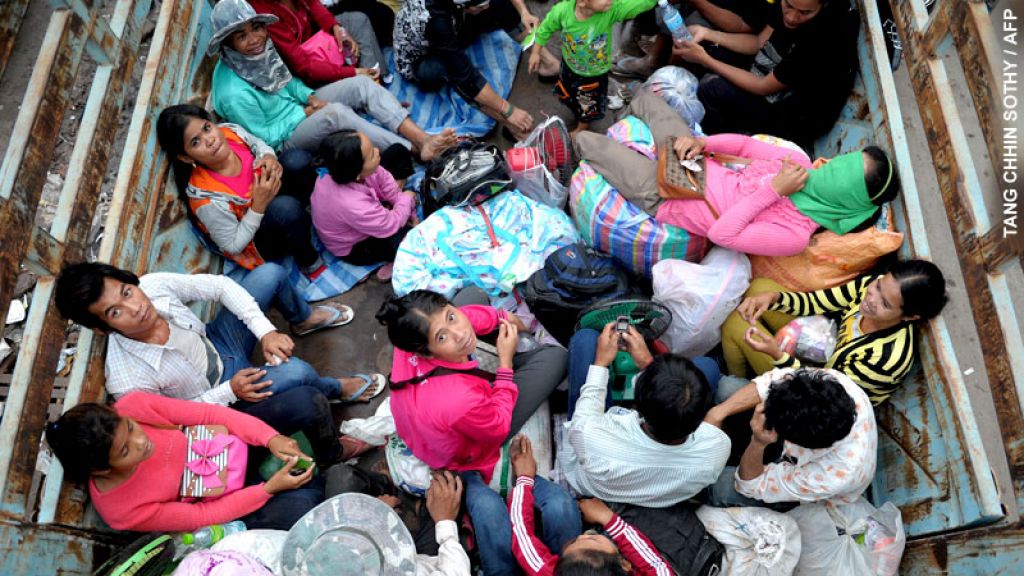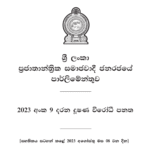Illicit or irregular migration is a global phenomenon, often analyzed from the perspective of the destination country. However, it is inherently a multilateral issue involving countries of origin, transit, and destination. Origin countries are implicated when individuals leave without valid travel documentation. Transit countries face challenges when migrants lack proper transit visas, while destination countries must address unauthorized entries and stays. Illegal migration is driven primarily by economic disparities, with migration patterns often reflecting labor market imbalances and income disparities between countries.
The lucrative nature of human smuggling, generating billions annually, underscores the severity of the issue. Unlike narcotics trafficking, human smuggling carries lower risks for criminal networks, making it an increasingly attractive venture. Consequently, smugglers exploit migrants’ vulnerabilities, often engaging in exploitative practices such as deferred payments or forced labor. This article provides an in-depth exploration of the legal, regulatory, and institutional frameworks addressing human smuggling and examines the associated liability issues, particularly in the context of international aviation.
United Nations Initiatives
The United Nations has long recognized the threat posed by human smuggling. Resolution 48/102, adopted by the General Assembly in 1993, highlighted the dangers to migrants and the economic burdens imposed on the international community. This resolution urged member states to combat human smuggling through enhanced cooperation and stricter enforcement of immigration laws. Subsequent resolutions, including Resolution 53/111, paved the way for the United Nations Convention Against Transnational Organized Crime (UNTOC), which serves as a cornerstone in combating transnational organized crime, including human smuggling.
The accompanying Protocol Against the Smuggling of Migrants by Land, Sea, and Air defines migrant smuggling as facilitating illegal entry into a state for financial or material gain. Importantly, the Protocol focuses on prosecuting smugglers rather than criminalizing the migrants themselves, emphasizing international cooperation to prevent, investigate, and prosecute such crimes. It also calls for the criminalization of activities such as producing fraudulent travel documents and underscores the need for secure travel documents to prevent misuse.
ICAO’s Role and the Evolution of Travel Documentation
The International Civil Aviation Organization (ICAO) has played a pivotal role in enhancing the security of travel documents. Over the past three decades, ICAO has developed specifications for machine-readable passports (MRPs) and visas, which have significantly improved border security and facilitated international travel.
Machine-Readable Passports (MRPs)
The MRP combines visual and machine-readable zones to enhance security and expedite border control processes. By enabling rapid verification and data recording, MRPs reduce the risk of forgery and misuse. Despite their advantages, MRPs coexist with conventional passports in some jurisdictions, reflecting the challenges of achieving universal adoption.
Machine-Readable Visas (MRVs)
Building on the success of MRPs, ICAO extended its efforts to machine-readable visas (MRVs). These visas can be integrated into both MRPs and conventional passports, further strengthening border security. The introduction of MRVs highlights the importance of harmonizing travel document standards globally.
Official Travel Documents
ICAO has also developed specifications for official travel documents and crew member certificates, ensuring uniformity and security across various categories of travel documentation. These advancements align with ICAO’s broader objectives under the Chicago Convention, which emphasizes the facilitation of international civil aviation.
Liability Issues for Air Carriers
The liability of air carriers in the context of human smuggling presents complex legal and ethical challenges. Under the Chicago Convention, air carriers are implicitly required to ensure passengers comply with immigration laws. Annex 9 to the Convention outlines the responsibilities of carriers in managing inadmissible passengers, including their return to the country of origin or a third country willing to accept them.
However, liability under the United Nations Convention Against Transnational Organized Crime requires knowledge and intent. Carriers can only be held accountable if they knowingly facilitate smuggling activities. This principle aligns with traditional legal doctrines requiring intent as a cornerstone of criminal liability.
Key Challenges
- Document Verification: Carriers must verify the authenticity of passengers’ travel documents, a task complicated by sophisticated forgery techniques.
- Negligence vs. Intent: Courts have grappled with cases where carriers failed to detect fraudulent documents or stowaways, raising questions about negligence and aiding smuggling.
- Technological Advancements: Emerging technologies, such as biometrics and smart cards, present opportunities for carriers to enhance security measures but also increase their obligations to adopt such measures proactively.
Conclusion
The smuggling of human cargo poses significant challenges to international law, public policy, and global security. While legal frameworks such as UNTOC and ICAO’s standards provide robust mechanisms to address the issue, enforcement remains a critical challenge. The liability of air carriers underscores the need for heightened vigilance, technological investment, and international cooperation. As migration patterns evolve, so too must the strategies to combat smuggling, ensuring a balance between security and the protection of migrants’ rights.














